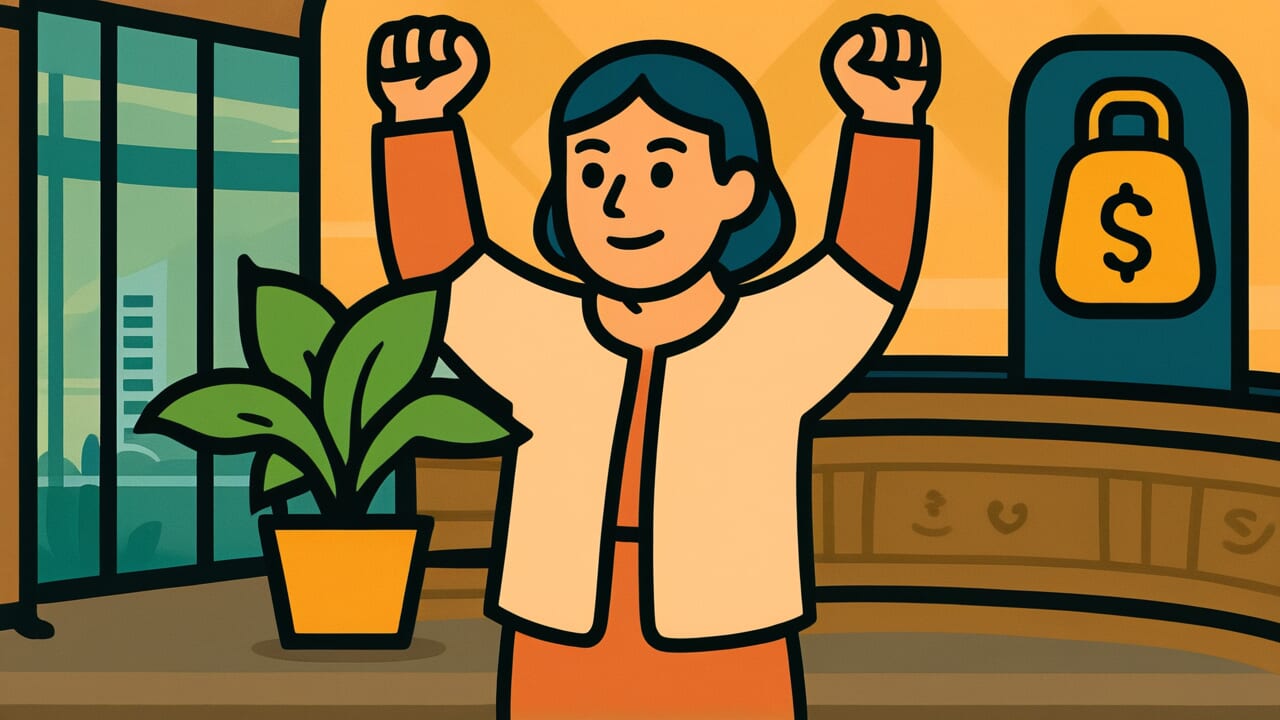How to Read “health is your first wealth”
Health is your first wealth
[HELTH iz yoor FURST welth]
All words use standard pronunciation.
Meaning of “health is your first wealth”
Simply put, this proverb means that good health is more valuable than money or possessions.
The saying tells us that physical well-being comes before everything else. Without good health, all the money in the world cannot buy happiness or peace of mind. Your body and mind working well together create the foundation for everything else you want to achieve. When you feel strong and energetic, you can work toward other goals.
We use this wisdom when making daily choices about food, exercise, and rest. Someone might skip a workout to work overtime for extra money. But this proverb reminds us that protecting our health pays off more in the long run. A person who stays healthy can work longer and enjoy life more than someone who sacrifices health for quick gains.
People often realize this truth when they face health problems. Suddenly, simple things like walking without pain or sleeping well become more precious than expensive items. The proverb helps us remember that our bodies are our most important investment. Taking care of ourselves is not selfish but smart planning for the future.
Origin and Etymology
The exact origin of this specific phrase is unknown, though the idea appears in various forms throughout history.
Ancient civilizations understood the connection between health and prosperity. Greek and Roman writers often discussed how physical wellness affected a person’s ability to work and enjoy life. During medieval times, when medical knowledge was limited, people relied heavily on folk wisdom about staying healthy. Sayings about health being valuable helped communities share important survival knowledge.
The phrase likely developed during the industrial age when people began working longer hours in difficult conditions. As cities grew crowded and working conditions worsened, the wisdom became more relevant. People needed reminders that earning money meant nothing if they destroyed their health in the process. The saying spread through communities as a practical warning about life priorities.
Interesting Facts
The word “wealth” originally comes from the Old English “wela,” meaning well-being or prosperity. This connection shows how closely health and wealth were linked in early language. The phrase uses simple, strong words that make it easy to remember and repeat.
Many languages have similar sayings that connect health with riches or treasure. This pattern suggests that people across different cultures discovered the same basic truth about human priorities.
Usage Examples
- Doctor to patient: “I know the surgery seems expensive, but don’t delay treatment – health is your first wealth.”
- Mother to college student: “Stop pulling all-nighters and eating junk food – health is your first wealth.”
Universal Wisdom
This proverb reveals a fundamental truth about human survival and the hierarchy of our needs. Throughout history, our ancestors observed that physical vitality determines everything else we can accomplish. A healthy person can work, think clearly, and adapt to challenges. Someone struggling with illness or injury faces limitations that no amount of external resources can fully overcome.
The wisdom addresses a core tension in human nature between immediate desires and long-term survival. We naturally want quick rewards and visible progress, like earning money or acquiring possessions. But our bodies operate on different timescales, showing the effects of our choices months or years later. This creates a constant conflict between what feels urgent now and what actually matters most for our future well-being.
The saying also reflects how easily we take our health for granted when we have it. Humans tend to notice problems more than smooth functioning. We feel pain immediately but barely notice when our bodies work perfectly. This psychological blind spot makes us undervalue our most precious resource until we lose it. The proverb serves as a reminder to pay attention to what we cannot see or feel directly but depends on our daily choices.
When AI Hears This
People treat their health like invisible background music playing constantly. They notice money coming and going every day. But health feels permanent until it suddenly breaks. This creates a strange mental trick where obvious priorities get completely reversed.
Humans evolved to focus on immediate, visible changes rather than slow shifts. A sick day feels temporary, but losing twenty dollars feels real. The brain treats steady good health as normal baseline conditions. Meanwhile, each new purchase or paycheck triggers clear reward signals in the mind.
This backwards thinking actually reveals something beautiful about human optimism. People assume their bodies will keep working while chasing dreams. The same blind spot that causes problems also fuels incredible ambition. Humans sacrifice present comfort for future possibilities, showing remarkable faith in tomorrow.
Lessons for Today
Living with this wisdom means recognizing that health decisions ripple through every area of life. When someone chooses to eat well, exercise regularly, and get enough sleep, they invest in their ability to handle stress, think clearly, and maintain energy for important goals. These choices might seem small daily, but they compound over time into significant advantages. The challenge lies in valuing future benefits over immediate convenience or pleasure.
In relationships and work, this understanding changes how we set boundaries and make commitments. Someone who protects their health can be more present and reliable for others. They avoid the cycle of pushing too hard, getting sick, and then disappointing people who depend on them. This creates better relationships and more sustainable success than the alternative of burning out repeatedly.
For communities and families, embracing this wisdom means creating environments that support healthy choices rather than undermining them. This might involve planning meals together, making time for physical activity, or respecting each other’s need for rest. The insight recognizes that individual health affects everyone in the group. When people take care of themselves, they contribute more effectively to shared goals and create less stress for others who care about them.



Comments